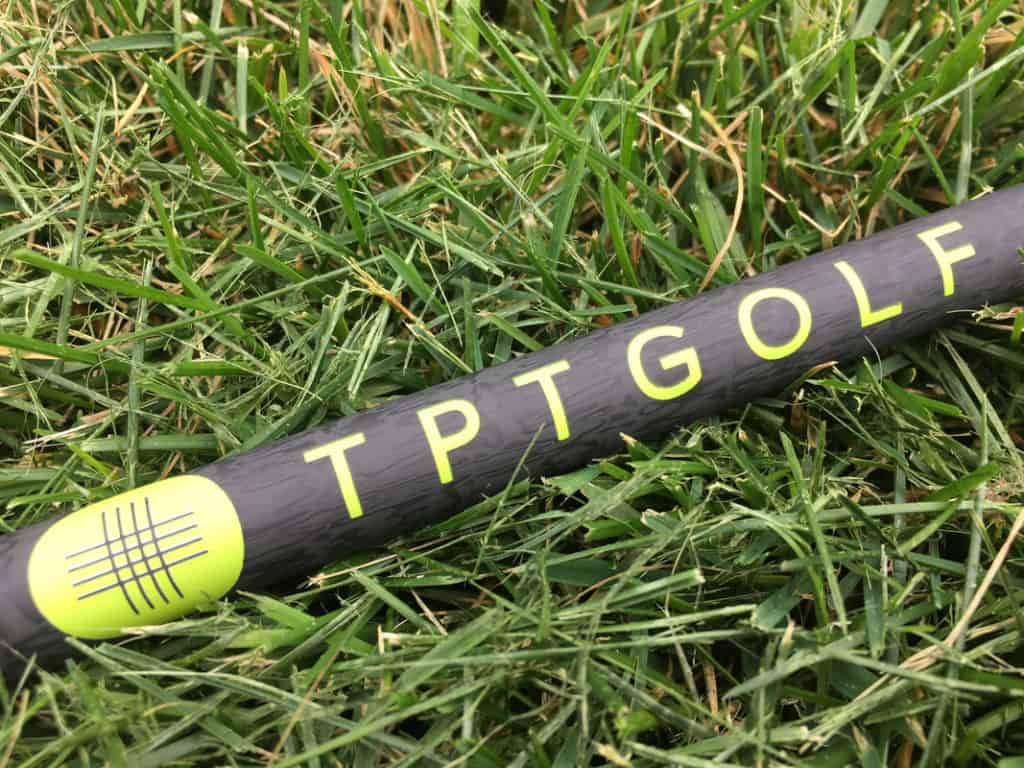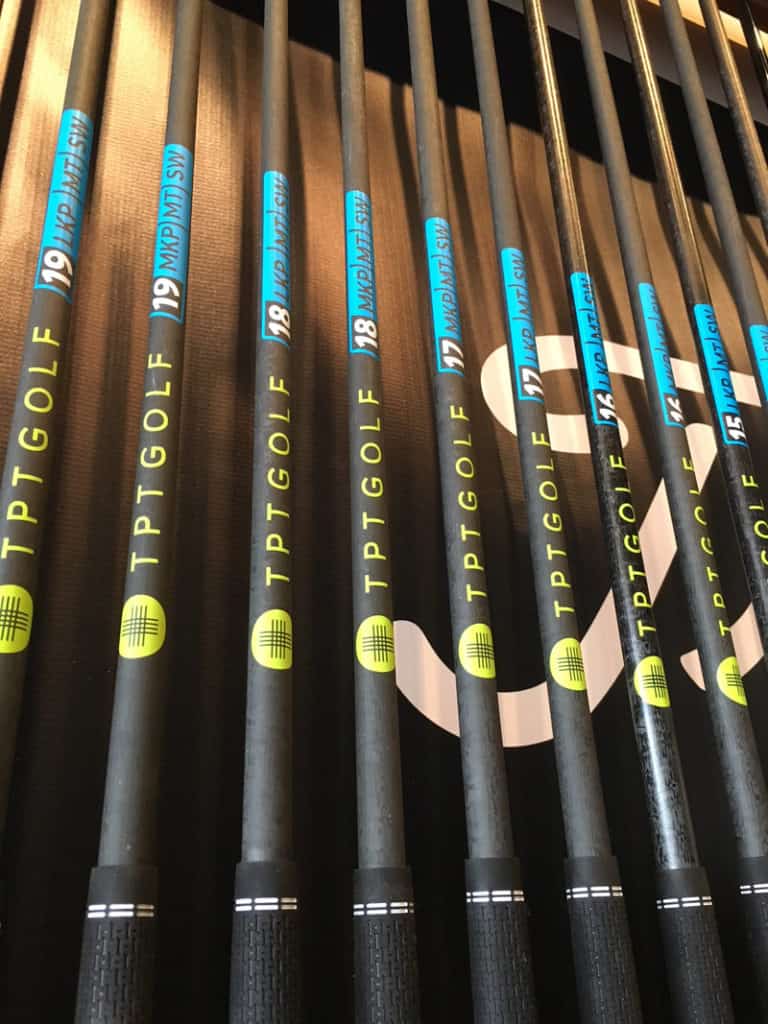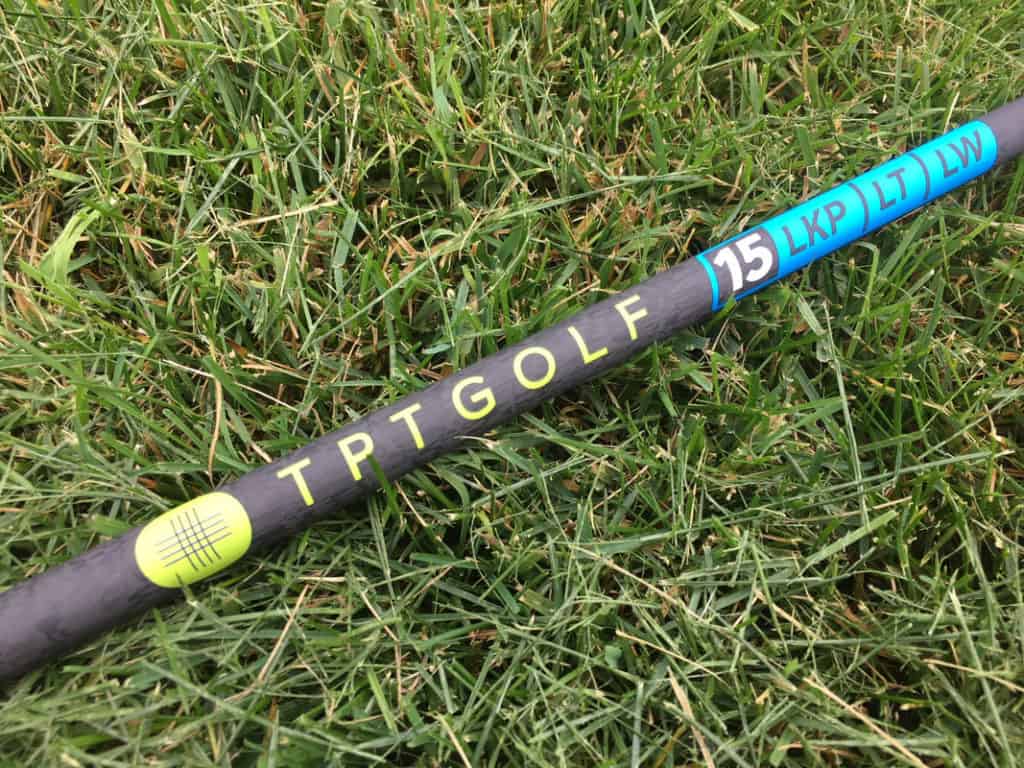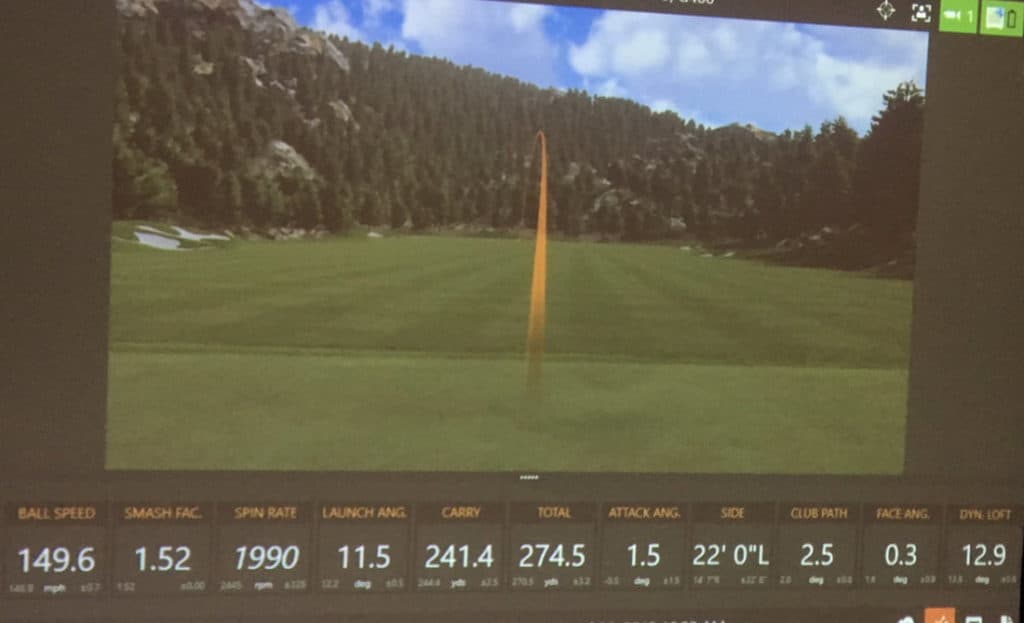REVIEW: TPT Driver Shaft

North Thin Ply Technology (NTPT) is the Swiss based parent company to TPT Golf (Thin Ply Technology). They are described as a world leader in the manufacturing of light weight prepreg materials. NTPT materials can be found in the sails of America’s Cup yachts, bodywork for Formula One cars, and luxury composite watches for Richard Mille. TPT Golf founder, Sebastian Sebayang believed their products would also serve the golf industry well. Sebayang presented their technology to other shaft manufactures and was told their product was too expensive. As a result, Sebayang went into the golf business himself and TPT Golf was born.
TPT Golf is segregated from other golf manufactures in their design, materials, and manufacturing. TPT utilizes very thin yet extremely stable materials that are manufactured under the tightest tolerances by machine. Premium offerings by other shaft companies are made by hand or hand rolled. TPT believes machining their shafts produces negligible variances in production and creates shafts that are perfectly concentric without a spine. When a player is fitted for a TPT shaft, they can trust that the one that hangs on the wall in a fitting studio will be the same as the one you order. For a touring professional, this level of consistency is extremely important. A replacement shaft will feel identical to the old one they have come to know and trust.
Sebayang does’t want you to just buy a TPT Golf shaft, he wants you to get fit for one. In fact, the only way you can purchase a TPT shaft is to order one in a fitting environment. Because of the weight, stability and consistency of TPT shafts, the player might find themselves fitted to a weight or flex they may have never played in the past. Sebayang believes the best TPT shaft is the one you’re fitted for by a portfolio of fitters he has hand selected to carry TPT shafts. In my hometown of Minneapolis, Minnesota, Club Champion is a fitting studio that can fit TPT shafts.

Last month, I had the opportunity to get fit for a TPT Shaft at Club Champion in Edina, Minnesota. I met with one of the most respected PGA Professionals and club fitters in the area, George Smith. With the use of Trackman technology and Smith’s fitting expertise, I tested the spectrum of TPT shafts. Based on my generalized launch monitor numbers, a computerized recommendation was made on which TPT shaft would best suit those numbers. However, based on his experience, Smith had me try some shafts that were weaker to flex and some that were more stout to flex. We discovered that I got the best and most effective numbers using a shaft flex stiffer than the computerized recommendation. My results were at the heart of what Sebayang believes is the best way to purchase a TPT shaft, under the watchful eye of a certified fitter.

Smith found that the TPT 15 LKP / LT / LW was the best performing shaft for my swing and his empirical data from Trackman validated this selection. The 15 LKP / LT / LW is the lowest torque, lightest weight shaft in TPT’s 15 series. Although my swing speed averages 102 MPH, Smith said that a slightly firmer shaft produced better performance numbers based on my angle of attack into the ball. With a properly fitted head combined with the best fitting TPT Golf shaft, I gained an average of 17 yards, more carry than in my current gamer. 275 yards on average off the tee, as a 12 handicap, is something that I am definitely happy with and can certainly work with. In addition to the increase in carry distance, the average shot dispersion and consistency also proved to be a better combination than my current gamer as well. This fitted combination proved to boost user confidence standing over the ball on the tee box.

After the fitting, Smith placed my order for the TPT shaft which was fitted with a Taylor Made tip to play in an M4 Driver. This combination produced the longest and most consistent results out the door. My fitting experience with Smith validated Sebayang’s philosophy that the best [and only] way to purchase a TPT Golf shaft is in a fitting environment. I could not have been happier with my experience with Club Champion and the professionalism combined with the passion of their fitter, George Smith.

Since their initial launch, TPT shafts have been reduced in price from $700 down to $500. Sebayang said this reduction is directly related to new efficiencies in the manufacturing process. Even at $500, TPT Golf shafts remain at the high end of the price spectrum. Sebayang explained that every shaft is produced exactly the same. The shafts found in the bags of tour players are exactly the same as the TPT shafts consumers can play. The quality and design consistencies are believed to be unmatched in the industry; the best of anything certainly comes at a price.
I asked Sebayang if consumers will see TPT Golf shafts offered as an exotic upgrade through OEM’s in future driver releases. Sebayang said that he envisions TPT Shafts being offered through VIP fitting experiences such as the TaylorMade Kingdom or Ely Callaway Performance Center. However, short of a quality fitting, TPT shafts will not be available as a standard upgrade anytime soon.
Sebayang said iron shafts are next on the horizon for TPT Golf. You can expect to see prototype testing on the professional tours in 2019, with projected consumer availability in 2020.

